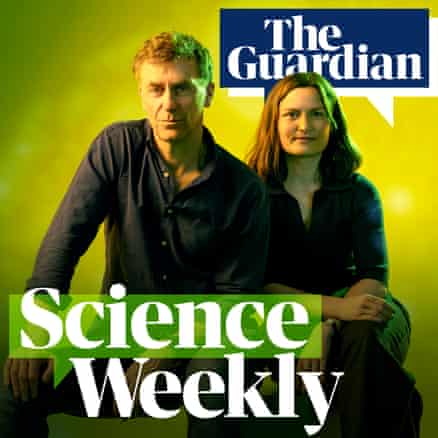Science
New Podcast Episode Explores Solutions for Amazon Rainforest Preservation

A recent episode of the podcast “How to Save the Amazon” delves into effective strategies for the preservation of the Amazon Rainforest. This episode emphasizes the importance of engaging with local communities and experts who possess valuable knowledge about the ecosystem. Released by The Guardian, the podcast aims to highlight grassroots efforts and the role of indigenous populations in forest conservation.
The Amazon Rainforest, often referred to as the “lungs of the Earth,” plays a crucial role in regulating the global climate. It covers over 5.5 million square kilometers across several South American countries, including Brazil, Peru, and Colombia. Despite its significance, the region faces severe threats from deforestation, illegal logging, and climate change. Recent reports indicate that nearly 17% of the Amazon has been lost in the last 50 years, prompting urgent calls for action.
In the latest episode, the podcast features interviews with conservationists, scientists, and indigenous leaders. These experts share insights into sustainable practices that can help mitigate the impact of deforestation and promote biodiversity. They stress the importance of listening to the voices of those who live in and around the rainforest, as they often possess traditional knowledge that can inform conservation strategies effectively.
One highlighted initiative involves the collaboration between indigenous communities and environmental organizations. Such partnerships aim to develop sustainable land management practices that respect both the cultural heritage of indigenous people and the ecological integrity of the rainforest. This collaborative approach can lead to innovative solutions that may not be possible through top-down policies alone.
The episode also discusses the role of technology in conservation efforts. Modern tools, such as satellite imagery and drone surveillance, are being employed to monitor deforestation rates and illegal activities in real time. This data-driven approach allows for more informed decision-making and timely interventions to protect vulnerable areas of the rainforest.
As the world increasingly recognizes the Amazon’s critical role in combating climate change, initiatives like “How to Save the Amazon” are essential for raising awareness and driving action. By engaging diverse voices and perspectives, the podcast aims to inspire listeners and encourage a broader discussion about the future of this vital ecosystem.
Listeners can access the full episode on platforms where podcasts are available. Further information and resources related to the podcast can be found at The Guardian‘s website, where the series aims to foster a global dialogue on environmental stewardship and conservation strategies.
The urgency of preserving the Amazon cannot be overstated. As various stakeholders unite in the fight against deforestation, it becomes increasingly clear that sustainable solutions must prioritize the participation of local communities and indigenous knowledge. The future of the Amazon hinges on collaborative efforts that respect its intricate ecosystems and the people who have long cared for them.
-

 Science3 months ago
Science3 months agoToyoake City Proposes Daily Two-Hour Smartphone Use Limit
-

 Health3 months ago
Health3 months agoB.C. Review Reveals Urgent Need for Rare-Disease Drug Reforms
-

 Top Stories3 months ago
Top Stories3 months agoPedestrian Fatally Injured in Esquimalt Collision on August 14
-

 Technology3 months ago
Technology3 months agoDark Adventure Game “Bye Sweet Carole” Set for October Release
-

 World3 months ago
World3 months agoJimmy Lai’s Defense Challenges Charges Under National Security Law
-

 Lifestyle3 months ago
Lifestyle3 months agoVictoria’s Pop-Up Shop Shines Light on B.C.’s Wolf Cull
-

 Technology3 months ago
Technology3 months agoKonami Revives Iconic Metal Gear Solid Delta Ahead of Release
-

 Technology3 months ago
Technology3 months agoApple Expands Self-Service Repair Program to Canada
-

 Technology3 months ago
Technology3 months agoSnapmaker U1 Color 3D Printer Redefines Speed and Sustainability
-

 Technology3 months ago
Technology3 months agoAION Folding Knife: Redefining EDC Design with Premium Materials
-

 Technology3 months ago
Technology3 months agoSolve Today’s Wordle Challenge: Hints and Answer for August 19
-

 Business3 months ago
Business3 months agoGordon Murray Automotive Unveils S1 LM and Le Mans GTR at Monterey









